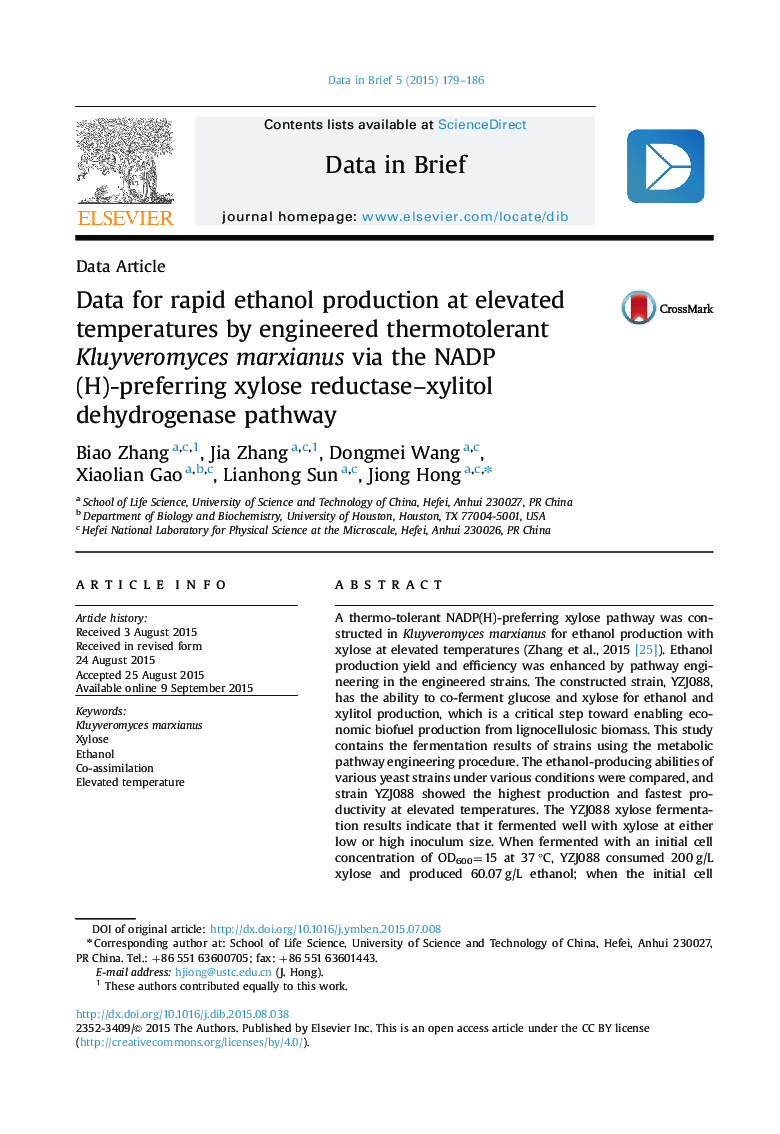| Article ID | Journal | Published Year | Pages | File Type |
|---|---|---|---|---|
| 174874 | Data in Brief | 2015 | 8 Pages |
A thermo-tolerant NADP(H)-preferring xylose pathway was constructed in Kluyveromyces marxianus for ethanol production with xylose at elevated temperatures (Zhang et al., 2015 [25]). Ethanol production yield and efficiency was enhanced by pathway engineering in the engineered strains. The constructed strain, YZJ088, has the ability to co-ferment glucose and xylose for ethanol and xylitol production, which is a critical step toward enabling economic biofuel production from lignocellulosic biomass. This study contains the fermentation results of strains using the metabolic pathway engineering procedure. The ethanol-producing abilities of various yeast strains under various conditions were compared, and strain YZJ088 showed the highest production and fastest productivity at elevated temperatures. The YZJ088 xylose fermentation results indicate that it fermented well with xylose at either low or high inoculum size. When fermented with an initial cell concentration of OD600=15 at 37 °C, YZJ088 consumed 200 g/L xylose and produced 60.07 g/L ethanol; when the initial cell concentration was OD600=1 at 37 °C, YZJ088 consumed 98.96 g/L xylose and produced 33.55 g/L ethanol with a productivity of 0.47 g/L/h. When fermented with 100 g/L xylose at 42 °C, YZJ088 produced 30.99 g/L ethanol with a productivity of 0.65 g/L/h, which was higher than that produced at 37 °C.
